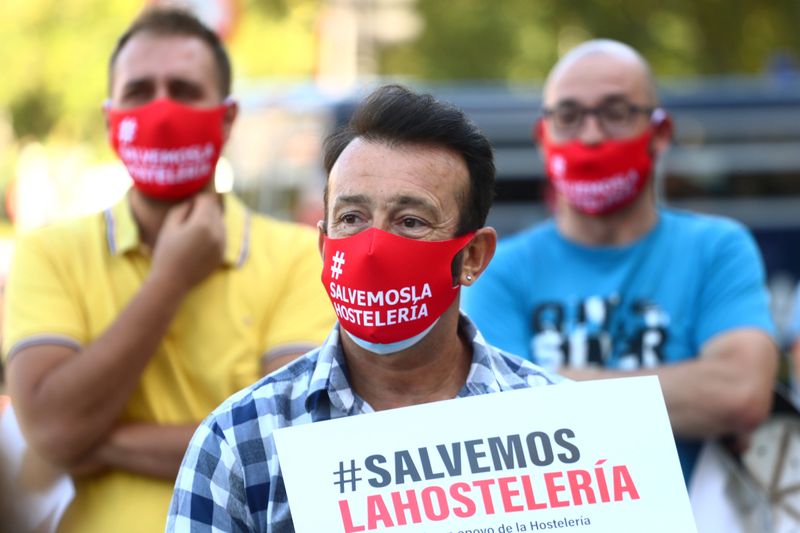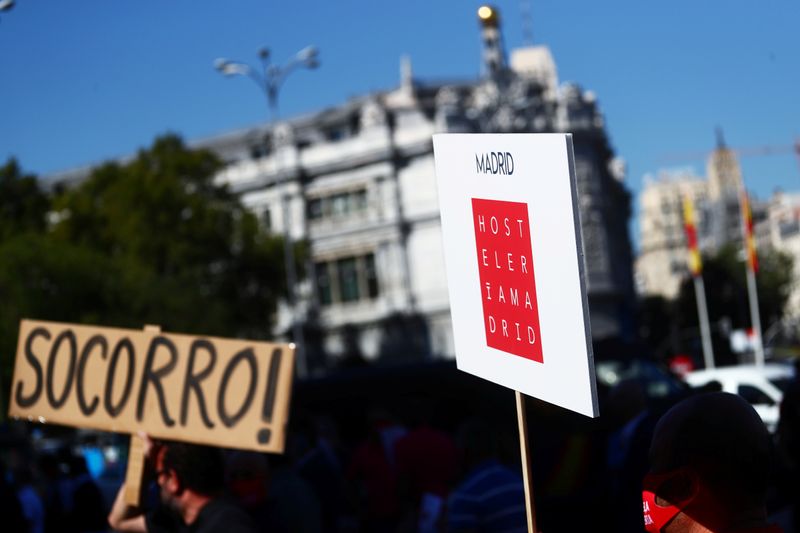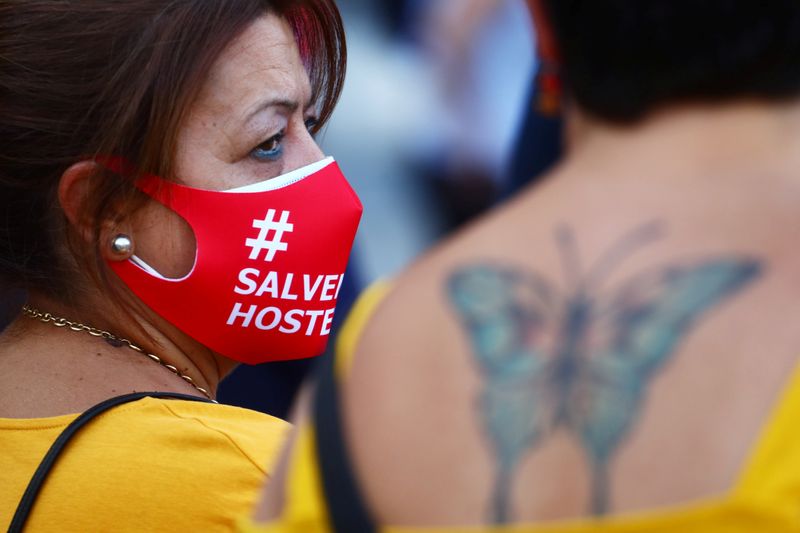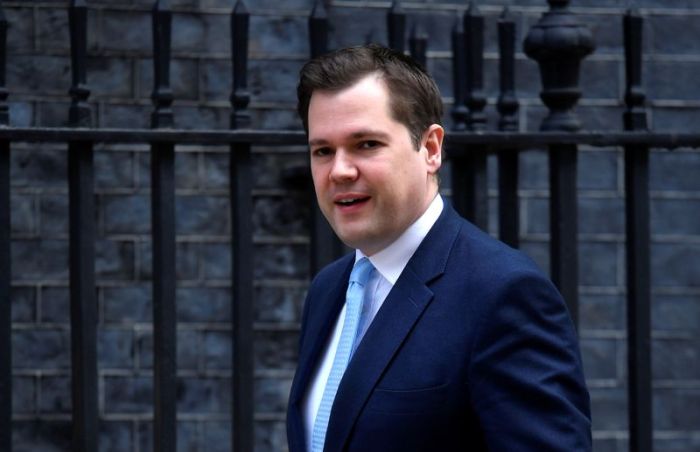MADRID (Reuters) – Holding banners reading “Help!” and “We are not the problem”, Spanish bar, restaurant and nightclub owners gathered in central Madrid on Wednesday to ask the government for tax cuts and support to survive the fallout from the coronavirus pandemic.
Nightclubs are closed in Madrid and usually bustling restaurants and bars are back to only being allowed to open at a reduced capacity to stem a rebound in COVID-19 cases in a country with a strong tradition of eating out.
“With the capacity they have assigned, taking steps backwards, this is an impossible situation,” said Pepa Munoz, owner and chef of “El Quenco de Pepa” restaurant in Madrid.
With few clients and scarce tourists, these businesses brace for an even tougher autumn and winter.
“We are hanging on thanks to terraces, but their days are numbered,” she said, dreading the cold winter days. Serving just about half her usual number of meals, she fears for the future of her 34 employees.
“Mister politicians, more help and less restrictions,” one banner read, while another said: “Six months closed. Help!”. The main hospitality business lobby has warned 85,000 businesses were in jeopardy this year..
“We are not earning any money at the business but we are still paying (taxes). We can only survive for a short time, maybe two or three months, I don’t think we could last longer,” said Jose Manuel del Moral, who works at his husband’s drinks bar “Zarpa” in Madrid.
The government has rolled out plans to help businesses but has so far ruled out a cut to value added tax.
Spain, which before the pandemic had the highest density of bars in the world with one for every 175 residents, according to a study by Nielsen consultancy, has been hit especially hard by the coronavirus and on Monday became the first Western European country to pass 500,000 cases.
Its economy shrank a record 18.5% in April-June, the sharpest drop among European Union member states.
(This story corrects to fix typo in headline)
(Reporting by Silvio Castellanos and Guillermo Martinez; Writing and additional reporting by Emma Pinedo; Editing by Ingrid Melander and Alexandra Hudson)




























